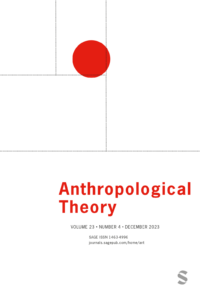
Jules Zhao Liu
Anthropological Theory, 2024
Abstract: The concept of bricolage was formulated by Lévi-Strauss in The Savage Mind to provide an analogy for how mythical thought works. In the following decades, scholars have frequently deployed the concept, not only in anthropology, but also in sciences, social sciences, and humanities. Inheriting Lévi-Strauss’s structuralism, French-speaking scholarship has tended to emphasize the structural patterns or constraints of bricolage, while English-speaking scholars have shown more interest in the individuality, subjectivity, or contingency of bricolage. This article seeks to integrate the merits of both strands of scholarships, transcend the collectivist/individualistic divisions, and develop bricolage into a multidimensional concept: Bricolage is a generative principle of regulated improvisation responding to restrictive or limited conditions. My ethnographic study of Kitchen God worship in one region of China shows that the entire process of creating is an individual embodiment of collective structure. Although bricolage is a product of structure intended to reproduce the structure, it can occasionally affect or change the structure. Thus, it is an important micro mechanism for culture change.
About the author: Jules Zhao Liu was a HYI Chinese Politics Training Program Visiting Fellow from 2016-17.
